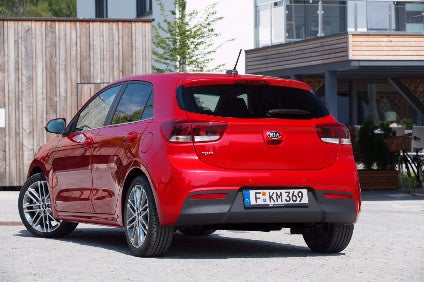
Domestic sales among South Korea’s five main automakers were flat at 106,210 units in January, compared with 106,281 units in the same month of last year, according to preliminary data released individually by the country’s vehicle manufacturers.
The data did not include sales by South Korea’s low-volume commercial vehicle manufacturers, including Tata-Daewoo and Daewoo Bus Corporation, which typically account for up to 2% of the domestic market.

Discover B2B Marketing That Performs
Combine business intelligence and editorial excellence to reach engaged professionals across 36 leading media platforms.
Also not included in the data were sales of imported vehicles, which were estimated at just over 12% of the total vehicle market last year. These will be covered in a separate report when the data is released later this month.
Last month’s marginal decline reflects slowing GDP growth in the country due to weaker private consumption and service sector growth. January this year had fewer working days than in the previous year due to the lunar new year holidays.
Like in previous months, the country’s smaller vehicle manufacturers enjoyed strongest gains in the domestic market, particularly Renault-Samsung and GM Korea, offsetting most of the declines by Hyundai and Kia.
Global sales among the country’s ‘big-five’ automakers, including vehicles produced overseas by Hyundai-Kia, fell by 1.2% to 618,930 in January, from 626,315 units a year earlier, with both domestic and overseas sales performing negatively.
Overseas sales in January, including overseas production, fell by 1.4% to 512,720 units last month compared with 520,007 units a year earlier.
Hyundai Motor‘s global sales rose by 1.4% to 342,607 units in January, from 338,035 units a year earlier, with buoyant overseas sales offsetting a negative home market performance.
Domestic sales fell by 9.5% to 45,100 units, compared with 49,852 units a year earlier, as the company came up against strong competition from smaller players – particularly in the popular SUV segment. Sales of sedans such as the Sonata and Avante were strong, but this was offset by sharply lower deliveries of the Santa Fe and Tucson SUVs.
Overseas sales rose by 3.2% to 297,507 units, from 288,183 units previously, helped by strong demand in India and North America.
Kia Motors‘ global sales fell by 7.1% to 198,805 units in January, from 213,980 units a year earlier, reflecting lower deliveries in both its home market and overseas.
Domestic sales fell by 9.1% to 35,012 units, from 38,505 units a year earlier, despite last month’s launch of the Morning small car and strong demand for the K7 midsize sedan and Mohave SUV.
Overseas sales fell by 6.7% to 163,793 units last month, from 175,475 units a year earlier, with output affected by fewer working days and model changeovers in key markets such as China.
GM Korea‘s global sales fell by 4.8% to 46,842 units in January, from 49,194 units a year earlier, with strong domestic sales continuing to make up for weak exports.
The data did not include exports of CKD kits for assembly overseas which are substantial.
Domestic sales jumped by 25.5% to 11,643 units last month, from 9,279 units a year earlier, helped by the recent launch of the new Malibu mid-size sedan and strong demand for the Spark mini-car. The company hoped to build on this momentum with the launch of the new Cruze compact sedan last month.
CBU exports fell by 11.8% to 35,199 cars in January, from 39,915 units a year earlier.
Renault-Samsung‘s global sales grew by almost 35% to 20,256 units in January, from 15,024 units a year earlier, driven by strong domestic sales while exports were marginally weaker.
Domestic sales jumped by over 254% to 7,440 units last month from 2,101 a year earlier, helped by the recent roll-out of the new SM6 mid-size sedan and the QM6 crossover vehicle. Exports fell by 0.8% to 12,816 units, from 12,923 units previously.
Ssangyong Motor, owned by India’s Mahindra & Mahindra, reported a 3.4% rise in sales of built-up vehicles to 10,420 units in January, from 10,082 units a year earlier – fuelled by buoyant domestic demand.
Domestic sales rose by 6.8% to 7,015 units last month, from 6,571 units a year earlier, helped by strong demand for the Tivoli SUV, while CBU exports fell by 3% to 3,405 units, from 3,511 previously.






